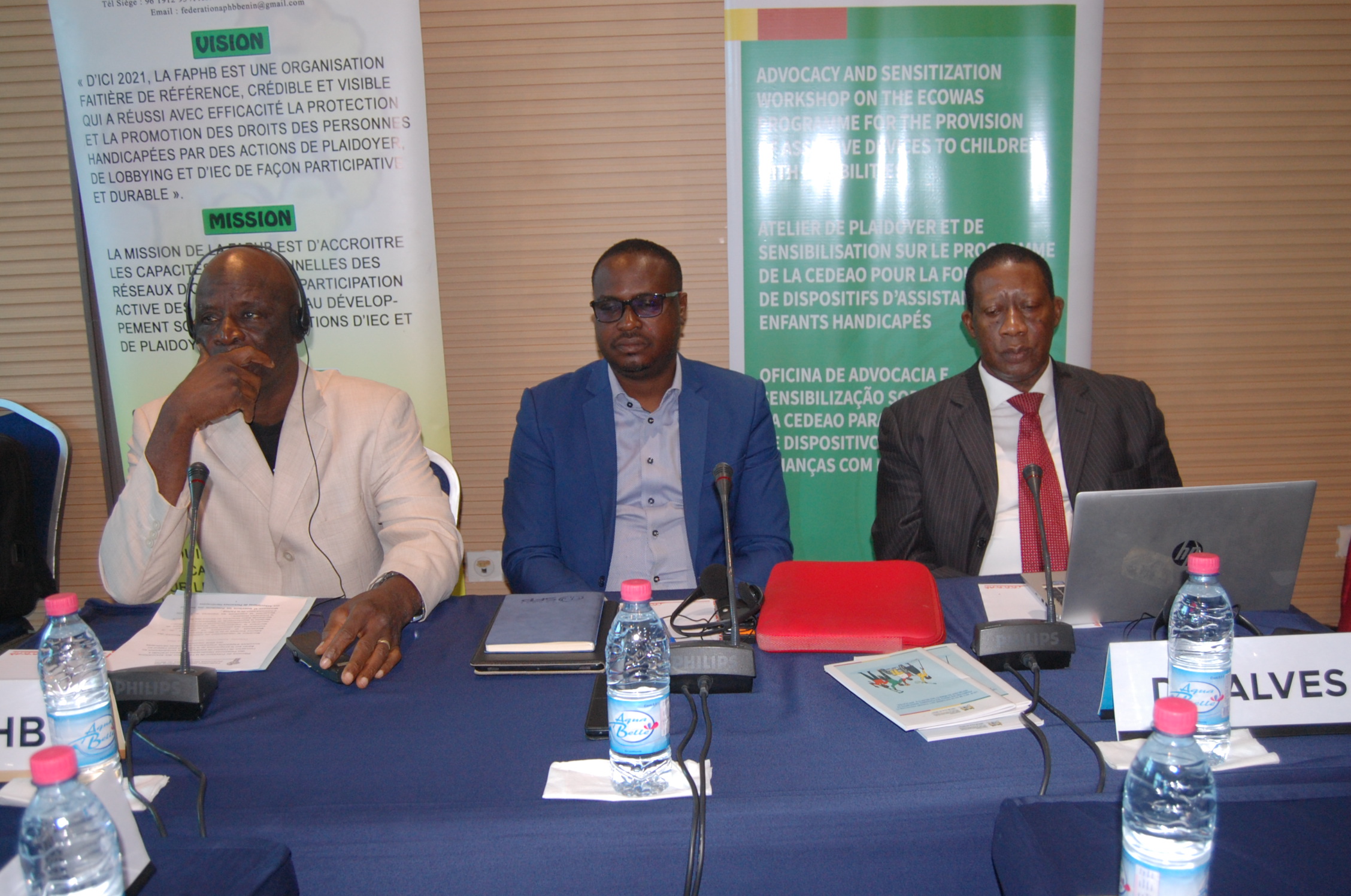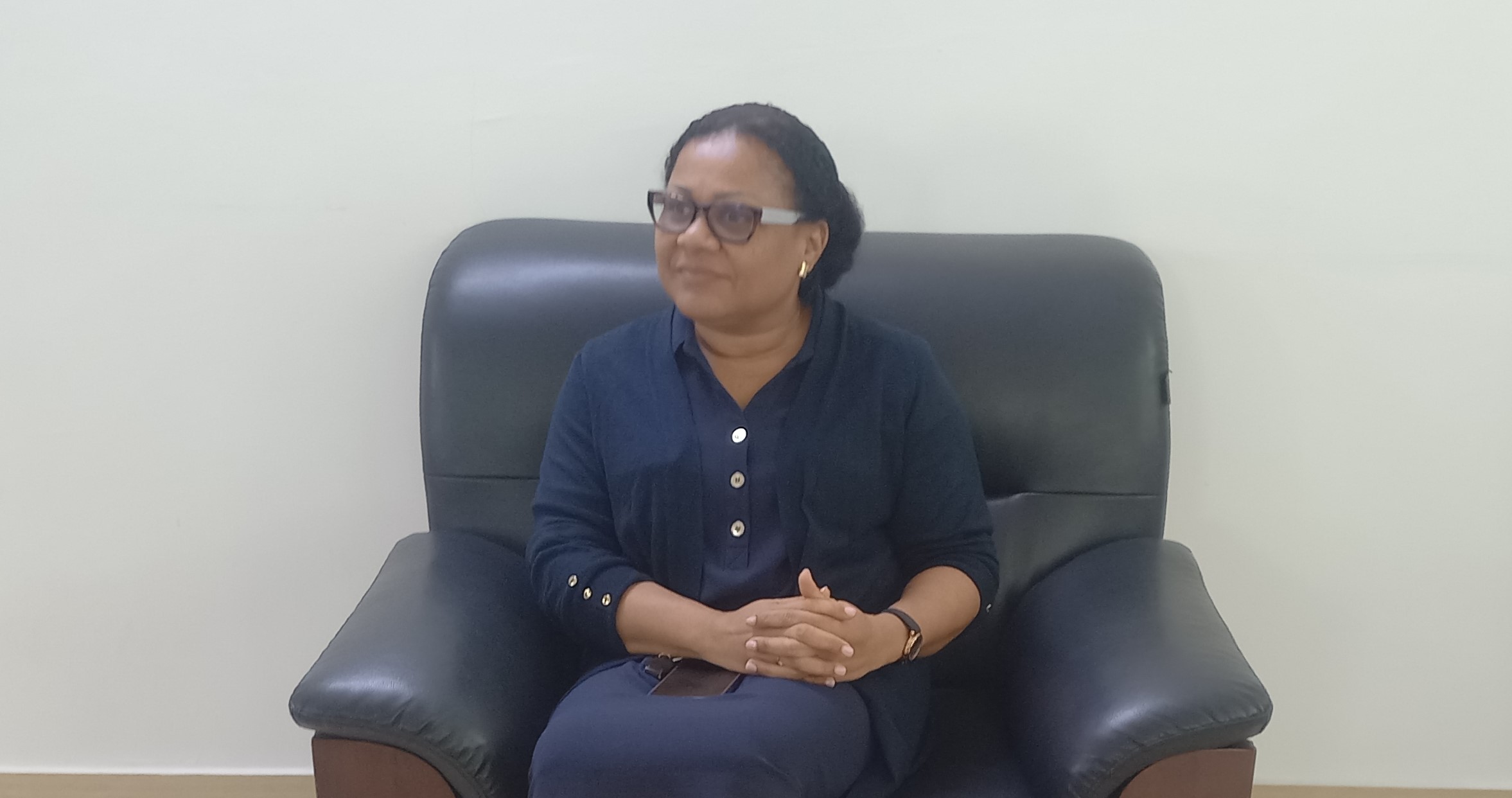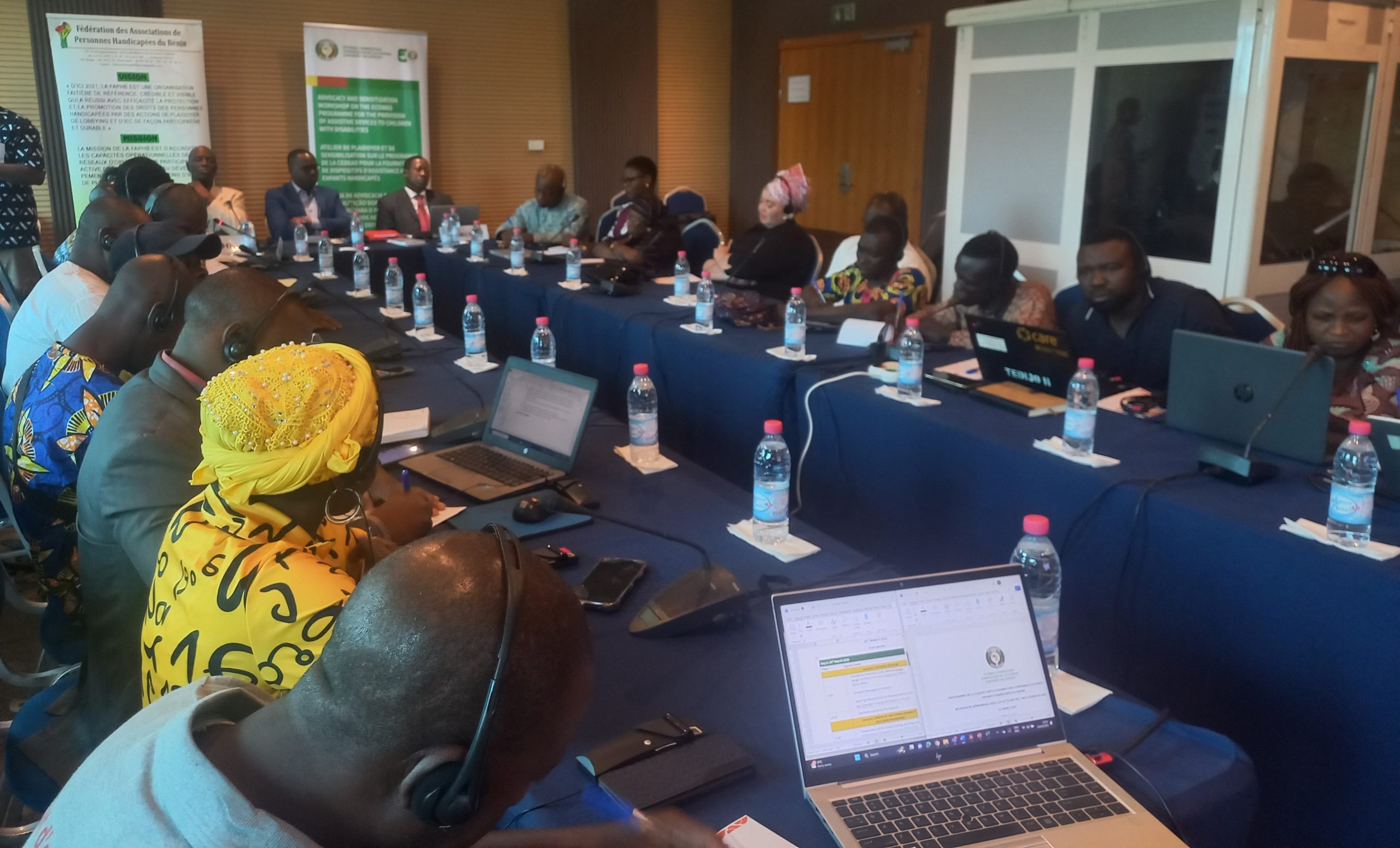ECOWAS raises Awareness on its support Programme for the Provision of assistive devices to children with disabilities in Benin
26 Mar, 2025Benin’s Director of Social Inclusion and Solidarity, Boubacal Yero Bani Samou, has expressed his gratitude to the Commission of the Economic Community of West African States (ECOWAS) for its efforts to make the issue of inclusion of people with disabilities in general, and children with disabilities in particular, a common ideal.
On Tuesday, March 25, 2025, in Cotonou, Benin, at the opening of the advocacy and awareness workshop of the ECOWAS Program for providing assistive devices to disabled children in Benin, he praised the commitment of the Regional Organization towards the inclusion of these children.
“Whatever efforts are made to meet the challenge of training, education and socialization of children with disabilities, in the absence of technical mobility aids to facilitate their social integration, it is quite difficult to expect that they will be able to participate fully in social and economic life as we all wish to do at the national and regional levels,” said Boubacal Yero Bani Samou.
According to the United Nations Children’s Fund (UNICEF), out of nearly 240 million children with disabilities worldwide, about 15% of children aged 0-17 years have a disability in West and Central Africa.
For the president of the Federation of Associations of Disabled People of Benin, Nassirou Domingo, like all children, those with disabilities also deserve to have access to equal opportunities to grow, learn and flourish.
Unfortunately, he said, major physical, social and institutional obstacles prevent them from realizing their full potential.
Technical assistance aids, including prosthetics, orthotics, wheelchairs, hearing devices, or communication technologies, are essential tools for the inclusion of children with disabilities, Mr. Domingo suggested.
“These devices allow children with disabilities to actively participate in school, social and cultural life, to forge links with their peers and to acquire skills for good socialization,” he said.
For his part, the senior officer of the Social Affairs program of the ECOWAS Commission, Dr. Alves D’almada Jorge Fernando, emphasized the regional Organization’s commitment to vigorously addressing issues related to persons with disabilities as well as those concerning their marginalization, discrimination, and stigmatization.
He recalled the validation and adoption of the ECOWAS Action Plan for the Social Inclusion of Persons with Disabilities.
“We are currently contributing to the construction of a more social ECOWAS for the peoples, an ECOWAS that is more social. With determination and sustained efforts from everyone, we will be able to achieve better results and effectively provide a better life for people with disabilities in the ECOWAS area and in the world,” declared Dr. Alves D’almada Jorge Fernando.
He did not fail to remind us of the objective of this meeting, which aims to examine and validate the terms of reference for the provision of assistive devices for children with disabilities in Benin.
Sister Florence Agbani, the Executive Director of the Service of Sisters for the Human Promotion of the Oblate Catechist Little Servants of Benin, and Ms. Pélagie Boko-Collins, the representative of Sightsavers for Benin and Togo, expressed their gratitude and support to ECOWAS for the establishment of its program aimed at providing assistive devices to disabled children in West Africa.
The purpose of this Programme is to promote the full participation of children with disabilities, as well as to strengthen their social inclusion and empowerment in the ECOWAS region.
Benin is the 3rd member state of ECOWAS to benefit from this Program; the first two being Nigeria and Togo. After Benin, Sierra Leone and Guinea-Bissau are the next states set to benefit from this Program.
At a cost of three hundred thousand (300,000) US dollars for its second phase, this Program aims to provide functional devices and accessories to disabled children in the community space, in order to promote their social inclusion and reduce their vulnerability.
It should be noted that on the eve of this workshop, the Minister of Social Affairs and Microfinance of Benin, Mrs. Véronique Tognifodé, as well as the resident representative of ECOWAS in Benin, Amadou Diongue, were briefed on the aforementioned Program by the delegation of the ECOWAS Commission.
In addition to Dr. Alves D’almada Jorge Fernando, this delegation included Ms. Abimbola Oyelohunnu and Liberor Doscof Aho, respectively in charge of Social Development and Communication at the ECOWAS Commission, as well as Ms. Bansopa Linda Daraté, junior advisor at the ECOWAS Resident Representation in Benin.




















